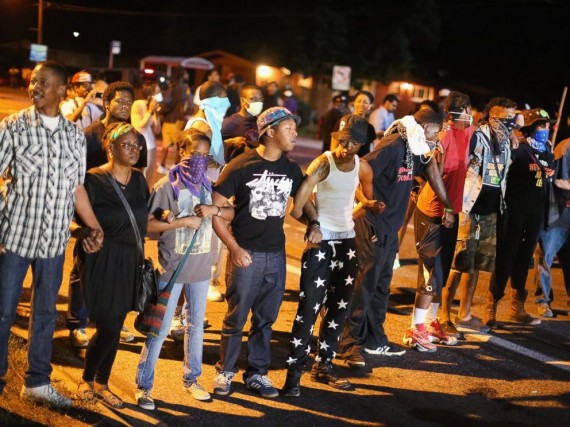I have a confession to make … I want to be waterboarded. Is that sort of twisted?

I have real trouble believing that it is as bad as people make it out to be.
In fact, I did a quick search, and found a guy who got together with some friends so they could all waterboard each other. How’s that for an evening of fun?!
One of the comments on that post point out exactly what I suspect is the real reason waterboarding is considered “torture” by some: the people doing it to you are your enemies and so there is no way to “tap out.” In reality, then, the real horror of waterboarding is almost entirely psychological.
Jesus and Violence
So as I write the occasional post about how Jesus wants us to respond to various themes in our culture and society, I found myself wondering how Jesus would respond to the current question about waterboarding our enemies.
I wondered, “Would Jesus waterboard His enemies?”
But don’t laugh too quickly at such a ludicrous question.
Last week I published a post called “Does Jesus drown babies?” and much to my shock, I had a couple of people leave comments to the affirmative, saying that they love and worship a God from the Bible who not only drowns babies, but slaughters them as well. Go read their comments…
I was talking with my wife about this, and said, “This is one reason there are atheists. If a baby-slaughtering god is the type of god we Christians present to the world, then it is no wonder that people want nothing to do with him.”
In my opinion, if god is a baby-slaughtering god, then rejecting him and facing the punishment of his hell is a more righteous act than worshiping him. If god is like Molech or Baal, then the atheist who rejects such a god is more honorable and righteous than the Christian who worships him.
But of course, I don’t believe that god is like Molech or Baal. I believe that God is like Jesus.
Jesus and Waterboarding
So anyway, this brings me back around to the seemingly-ludicrous question, “Would Jesus waterboard His enemies?”
Though there may be some Christians who would say, “Of course!” (Any of you out there? Please explain your position in the comments below!) I would answer the question negatively. I cannot imagine Jesus using “enhanced interrogation techniques” on his enemies, even if such techniques are primarily psychological.
Instead, it seems to me that Jesus would untie his enemy, hand him the bucket, and then get down on the waterboard himself, saying, “Go ahead. I forgive you.”
In fact, isn’t that exactly what Jesus did do in going to the cross?

We, who deserved to die for all the evil we have done in this world (and usually in the name of God), should have been the ones to go to one of the most painful and excruciating torture techniques invented by man – the Roman cross. But instead, Jesus got up there Himself and looked us in the face and said, “Go ahead. I forgive you.”
So would Jesus waterboard His enemies? Of course not. He would let them waterboard Him. And, they would likely kill him in the process.
Jesus, Governments, and Waterboarding
Now, having said this, we must recognize that Jesus is not a government and a government is not Jesus. The question “Would Jesus waterboard?” is very different than “Should a government waterboard?” There is a vast difference (as Jesus and every New Testament author reveals) between the Kingdom of God and the kingdoms of this world.
The kingdom of God is lived out as individuals and small groups of Christ-followers practice the enemy-blessing example of Jesus. But since the kingdoms of this world are under the sway and dominion of the principalities and powers, we should not expect them to naturally adopt the values of Jesus.
As members of the Kingdom of God, we can (and should) call our human governments to a better and different way of living in relation to others, but we should recognize that change takes decades—even centuries!—to occur.
This does not excuse our human governments for what they do, but it does help explain their actions. (There is so much to say here … about scapegoating, the myth of redemptive violence, and the role of religion in sanctioning state violence … but it simply cannot all be said. Instead, let me direct you to a few helpful books: The Myth of a Christian Nation, A Faith Not Worth Fighting For, The Powers Trilogy, and my own Dying to Religion and Empire).
So what can we say about our government’s involvement in waterboarding?

Look, violence of all sorts makes no sense when thoughtfully considered, but almost more silly are the politically-motivated objections to violence. Without the foundation of Jesus Christ, neither violence nor non-violence make any sense.
I find it quite interesting in the current debate about waterboarding and “enhanced interrogation techniques” that many of the same people who are condemning the practice of waterboarding as a means to learn information about what our nation’s enemies are planning, are the same people who, after 9-11, demanded to know why our nation’s intelligence did not know that the 9-11 terrorist attack was coming.
I absolutely guarantee that if our country had not used the techniques it did to learn information that it did through techniques like waterboarding, and if another terrorist attack had occurred like the one on 9-11, the same people who are calling for an investigation into waterboarding today would instead be calling for an investigation into why our intelligence community failed to uncover this terrorist plot.
In other words, it’s “Damned if you do; damned if you don’t.”
I am not defending waterboarding.
All I am saying is that this world is a messy place, and various governments do various things to further their goals and defend their people. Sometimes what they do is good, and sometimes what they do is evil, but most often it is a sad mixture of both.
So when it comes right down to it, while I think we can safely say that Jesus would not waterboard His enemies, this does not mean that in a sinful and chaotic world, human governments should not. In my opinion, waterboarding (along with sleep deprivation and other such techniques), is a form of psychological torture. But, as bad as this may be, such “enhanced interrogation techniques” are better than physical torture techniques like flaying people alive, putting them on the rack, or slow-roasting them on a spit above a fire.
This is what we call progress.
Do you want to know why the world is seeing progress in how governments deal with their enemies? Because the rule and reign of God is expanding upon the earth. Because as Christians model the Kingdom of God in their own lives, and call others to do the same, the human kingdoms of this world see that there is indeed a better way, a more loving way, a way that does not degenerate into the vicious downward spiral of ever-increasing violence.
Believe it or not, the world is learning to look like Jesus by watching followers of Jesus live like Jesus.
Christians and Waterboarding
So should Christians waterboard others? Of course not! (Unless someone wants to come waterboard me…)
Should Christians call for our nation to treat our enemies with the dignity and respect they deserve as human beings for whom Jesus died? Yes!
Will our governments listen? No.
But they will observe our example.
Do you have Muslim neighbors or coworkers? Bless them. Love them. Serve them.
You see, the current problem the Western world faces with many in the Middle East has been centuries in the making. It will likely take centuries to correct it. And where do we begin? With you and me treating “them” with love, generosity, and forgiveness.
Jesus never called governments to conform to His values and ideals for this world. But He did call you and me to follow His example, so that we can proclaim and advance the rule and reign of God on earth.




 Remember Andrea Yates? She is the mother who, in 2001,
Remember Andrea Yates? She is the mother who, in 2001,  On the one hand, we say, “There is no way God told these mothers to drown their babies,” but then we turn around and say, “God drowned millions of babies during the flood.”
On the one hand, we say, “There is no way God told these mothers to drown their babies,” but then we turn around and say, “God drowned millions of babies during the flood.” I have talked about this with numerous people over the past couple years, and almost without fail, people who defend the divine origin of the flood point to Jesus entering the temple with a whip (John 2:15; Matt 21:12) as proof that Jesus was also involved in sending the flood.
I have talked about this with numerous people over the past couple years, and almost without fail, people who defend the divine origin of the flood point to Jesus entering the temple with a whip (John 2:15; Matt 21:12) as proof that Jesus was also involved in sending the flood. If Jesus is a God who drowns babies because “They’re the devil!” and then rides His horse through a lake of blood from His slain enemies because “They wouldn’t worship me!” (Duh! You drowned millions of their babies!), I’m just not sure this sort of God is worthy of our worship.
If Jesus is a God who drowns babies because “They’re the devil!” and then rides His horse through a lake of blood from His slain enemies because “They wouldn’t worship me!” (Duh! You drowned millions of their babies!), I’m just not sure this sort of God is worthy of our worship.




 And again, maybe the Grand Jury will uncover some evidence which proves that Darren Wilson was racist, and if so, such actions and behavior can be rightly condemned by those who follow Jesus.
And again, maybe the Grand Jury will uncover some evidence which proves that Darren Wilson was racist, and if so, such actions and behavior can be rightly condemned by those who follow Jesus.

 I have long hair.
I have long hair. Looking like Jesus means that we will not stand out in a crowd for how we are dressed or what we are saying, but will get noticed because of what we stand up for—or more precisely, who we stand up for.
Looking like Jesus means that we will not stand out in a crowd for how we are dressed or what we are saying, but will get noticed because of what we stand up for—or more precisely, who we stand up for.
